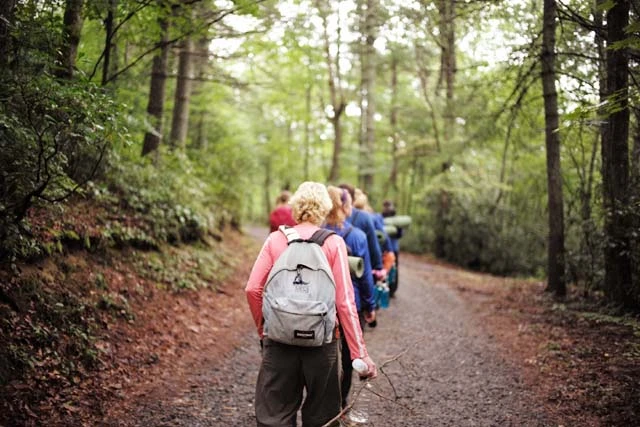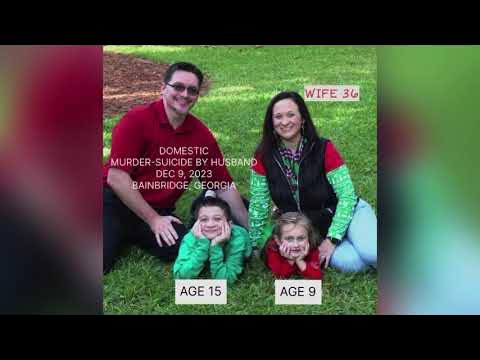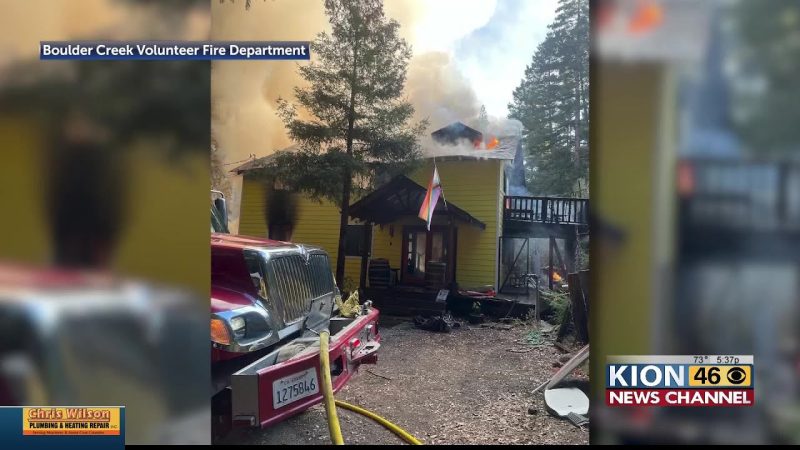Unraveling the Trails Carolina Investigation: A Closer Look into Troubling Allegations

Trails Carolina, a therapeutic wilderness program, has long been regarded as a transformative experience for struggling teens, promising healing and personal growth in the heart of nature. However, recent investigations have shed light on allegations of misconduct and abuse within the program, raising concerns about the well-being of participants. In this article, we delve into the Trails Carolina investigation to understand the nature of the allegations, the responses from the program, and the broader implications for the troubled teen industry.
Background:
Trails Carolina, founded in 2008, offers wilderness therapy for adolescents facing emotional and behavioral challenges. Participants embark on journeys through the wilderness, engaging in therapeutic activities designed to foster personal development and resilience. The program has received praise for its innovative approach, blending adventure and therapy in a natural setting.
Allegations and Investigations:
The first whispers of trouble within Trails Carolina emerged when former participants and staff members began sharing accounts of alleged misconduct. Reports ranged from verbal abuse to instances of physical mistreatment, prompting concerned parents and advocacy groups to call for a thorough investigation.
Government agencies, including child protection services and regulatory bodies, initiated inquiries into these allegations, aiming to ascertain the veracity of the claims and ensure the safety of the participants. The investigations, spanning several months, involved interviews with former participants, staff members, and parents, as well as a comprehensive review of the program’s practices.
The Nature of Allegations:
The allegations against Trails Carolina are diverse and troubling, encompassing various forms of misconduct. Some former participants claim they experienced verbal and emotional abuse from staff members, describing instances of humiliation and degradation. Others have reported incidents of physical mistreatment, raising questions about the program’s adherence to ethical and safety standards.
Several accounts also point to concerns about the overall effectiveness of the therapeutic interventions employed by Trails Carolina. Critics argue that the program’s emphasis on outdoor challenges may not be suitable for all participants, potentially exacerbating existing mental health issues rather than addressing them.
Trails Carolina’s Response:
In response to the allegations, Trails Carolina issued a statement expressing their commitment to the safety and well-being of participants. The program acknowledged the investigations and pledged full cooperation with the authorities. They also emphasized their dedication to continuous improvement, stating that any identified shortcomings in their practices would be addressed promptly.
Trails Carolina has maintained that their mission is to help adolescents overcome challenges and build a foundation for a healthy future. They argue that the wilderness therapy model has proven effective for many participants, citing success stories of individuals who have undergone positive transformations during their time in the program.
The Impact on Participants:
As the investigations unfold, the impact on current and former participants of Trails Carolina cannot be overstated. Those who have had positive experiences with the program may find their testimonies overshadowed by the negative publicity, while others who have suffered alleged mistreatment may see the investigations as a long-awaited validation of their grievances.
The emotional toll on participants and their families is considerable, with many grappling with the uncertainty of whether their experiences were within the bounds of acceptable therapeutic practices or veered into the realm of abuse. The Trails Carolina investigation has sparked a broader conversation about the need for greater oversight and regulation in the troubled teen industry.
Broader Implications:
The Trails Carolina investigation is not an isolated incident but rather part of a larger discourse surrounding the troubled teen industry. Critics argue that the lack of standardized regulations and oversight in this field allows for a wide range of practices, some of which may be harmful to vulnerable adolescents.
As stories of alleged misconduct within therapeutic programs surface, there is growing pressure on regulatory bodies and policymakers to establish clearer guidelines to ensure the safety and well-being of participants. Advocacy groups are calling for increased transparency, standardized reporting mechanisms, and stricter licensing requirements for wilderness therapy programs.
Conclusion:
The Trails Carolina investigation has brought to light a complex and concerning narrative within the troubled teen industry. While the program’s mission to help adolescents navigate challenges and build resilience is commendable, the allegations of misconduct raise serious questions about the ethical and therapeutic foundations of such programs.
As the investigations continue, the outcomes will undoubtedly have a lasting impact on Trails Carolina and the broader troubled teen industry. The push for increased accountability and regulation may reshape the landscape of wilderness therapy programs, ultimately determining the future of these interventions for struggling teens. For now, concerned parents, former participants, and industry stakeholders await the conclusions of the investigations, hoping for a resolution that prioritizes the well-being of the adolescents who seek help in these programs.
What is the Trails Carolina investigation?
A1: The Trails Carolina investigation refers to the ongoing scrutiny of the wilderness therapy program, Trails Carolina, following allegations of misconduct and abuse. The investigation involves inquiries by government agencies, child protection services, and regulatory bodies to assess the validity of the claims and ensure the safety and well-being of program participants.
Q2: When did the Trails Carolina investigation begin?
A2: The Trails Carolina investigation began after reports of alleged misconduct surfaced, prompting concerned parents, former participants, and advocacy groups to call for a thorough examination. The exact initiation date may vary depending on the specific allegations and when they were brought to the attention of authorities.
Q3: What are the nature of the allegations against Trails Carolina?
A3: The allegations against Trails Carolina include verbal and emotional abuse, instances of physical mistreatment, and concerns about the overall effectiveness of the therapeutic interventions employed by the program. Former participants and staff members have shared accounts of troubling experiences, ranging from humiliation to allegations of unsafe practices.
Q4: How is Trails Carolina responding to the allegations?
A4: Trails Carolina has responded to the allegations by expressing a commitment to the safety and well-being of participants. The program has acknowledged the investigations and pledged full cooperation with the authorities. Trails Carolina emphasizes its dedication to continuous improvement and states that any identified shortcomings in their practices will be promptly addressed.
Q5: What therapeutic approach does Trails Carolina use, and why has it faced criticism?
A5: Trails Carolina employs a wilderness therapy model, combining outdoor challenges with therapeutic interventions to facilitate personal development for struggling adolescents. However, the program has faced criticism for the alleged inappropriate use of this approach, with some arguing that it may not be suitable for all participants and could potentially exacerbate existing mental health issues.
Q6: How are current and former participants affected by the investigation?
A6: The investigation has a significant emotional impact on both current and former participants. Those who have had positive experiences may find their testimonies overshadowed by negative publicity, while others who have alleged mistreatment may see the investigations as a validation of their grievances. The uncertainty surrounding the program’s practices can contribute to emotional distress for participants and their families.
Q7: What are the broader implications of the Trails Carolina investigation?
A7: The Trails Carolina investigation is part of a larger discourse surrounding the troubled teen industry. It has sparked conversations about the need for greater oversight and regulation to ensure the safety and well-being of participants in wilderness therapy programs. Advocacy groups are calling for increased transparency, standardized reporting mechanisms, and stricter licensing requirements for the industry.
Q8: Is this investigation isolated, or are there similar concerns in the troubled teen industry?
A8: The Trails Carolina investigation is not isolated, as concerns about misconduct and abuse have been raised in the troubled teen industry more broadly. The lack of standardized regulations and oversight has allowed for a range of practices, prompting calls for increased accountability and clearer guidelines to protect vulnerable adolescents in therapeutic programs.
Q9: What are the potential outcomes of the Trails Carolina investigation?
A9: The potential outcomes of the Trails Carolina investigation could include changes to the program’s practices, increased regulatory oversight, and a broader impact on the troubled teen industry. Depending on the findings, there may be implications for how wilderness therapy programs are operated, licensed, and monitored in the future.
Q10: How can concerned parents and participants stay informed about the Trails Carolina investigation?
A10: Concerned parents and participants can stay informed about the Trails Carolina investigation by following updates from reputable news sources, official statements from the program, and information provided by relevant government agencies or regulatory bodies overseeing the investigation. Additionally, joining support groups or online communities may offer a platform for sharing information and experiences related to the investigation.





